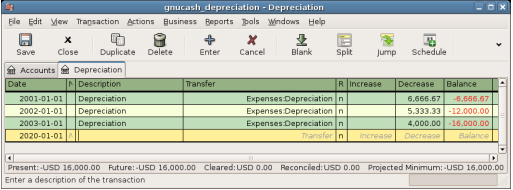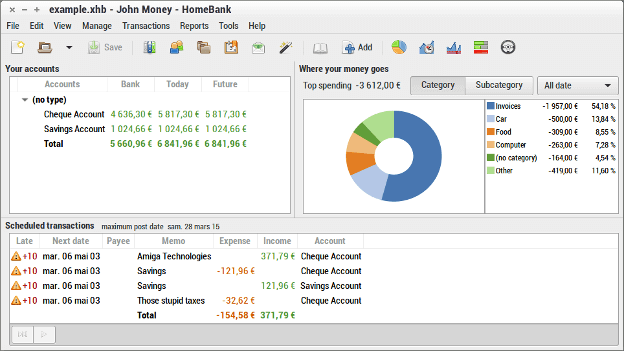Last Updated on April 16, 2022
Intuit Inc. is an American corporation that specializes in financial software. Specifically, the company develops personal finance, accounting, and tax return software.
The company is headquartered in Mountain View, California. It has more than 10,000 employees.
While Intuit has a GitHub presence with over 100 repositories for numerous open source projects, none of these repositories offer any substantial desktop software. Instead, the repositories focus on tools and libraries for developers. None of these projects appear to have attracted significant interest from the open source community.
The company focuses its development efforts on a range of proprietary programs. Intuit refuses to support any platform other than Windows and macOS.
This series looks at free and open source alternatives to Intuit’s products.
![]() Mint is a personal financial management website. The service offers personalized insights, custom budgets, spend tracking, and monitoring.
Mint is a personal financial management website. The service offers personalized insights, custom budgets, spend tracking, and monitoring.
What are the best free and open source alternatives to run locally?
1. GnuCash
GnuCash is a personal and small-business financial accounting program.
Designed to be easy to use, yet powerful and flexible, GnuCash allows you to track bank accounts, stocks, income and expenses. As quick and intuitive to use as a checkbook register, it’s based on professional accounting principles to ensure balanced books and accurate reports.
The software can help keep track of your personal finances, help you determine where your money is being sent, monitor your stock portfolio, plan investments and track loan and mortgage repayments, in whatever currency you want.

2. HomeBank
HomeBank is a fast, simple and easy to use program to manage your accounts.
It sports a lot of features such as easy analysis with graphical charts (statistics, budget, overdrawn, car cost), multi-accounts support, budget management, reminder, import from OFX/QFX-CSV files, visual status of operations.

3. Money Manager Ex
Money Manager Ex (MMEX) is a cross-platform, easy-to-use personal finance software. It primarily helps organize one’s finances and keeps track of where, when and how the money goes. It’s also a tool to get a bird’s eye view of your financial worth.
Think of MMEX as a computer chequebook which enables you to balance your accounts, organize, manage and generate reports for your finances.
MMEX includes all the basic features that the vast majority of users would want to see in a personal finance application. The design goals are to concentrate on simplicity and user-friendliness – something one can use on a daily basis.

All articles in this series:
| Alternatives to Intuit's Products | |
|---|---|
| Mailchimp manages mailing lists and creates email marketing campaigns and automations to send to customers. | |
| Mint is a personal financial management website. The service offers personalized insights, custom budgets, spend tracking, and monitoring. | |
| TurboTax is a software package for preparation of American income tax returns step-by-step. | |
| Quickbooks is an accounting software package targeted mainly at small and medium-sized businesses. | |


You missed Grisbi and Skrooge. There is more software available than your first 3 hits on Google.
The purpose of this article is to pick the cream of the available open source software.
Actually we didn’t miss Grisbi or Skrooge. In our opinion, neither are as strong as the 3 recommendations as confirmed by this roundup (that article is overdue for an update).
pastoredb, take your snide comment and jog on.
I have tried all of these options, several times over the years since leaving windows, and have found that KMyMoney was, hands down, the best possible choice for me. It hit most of the things that I wanted after leaving Quicken. But again, this is what I found best for me.
John B Spence, I agree completely, there is nothing on android that compares to kmymoney.
Rgds Daveleh
I’m guessing John is referring to KMyMoney under Linux, not Android?
I have found GnuCash the best replacement for Quicken myself.
And the education system failed you.